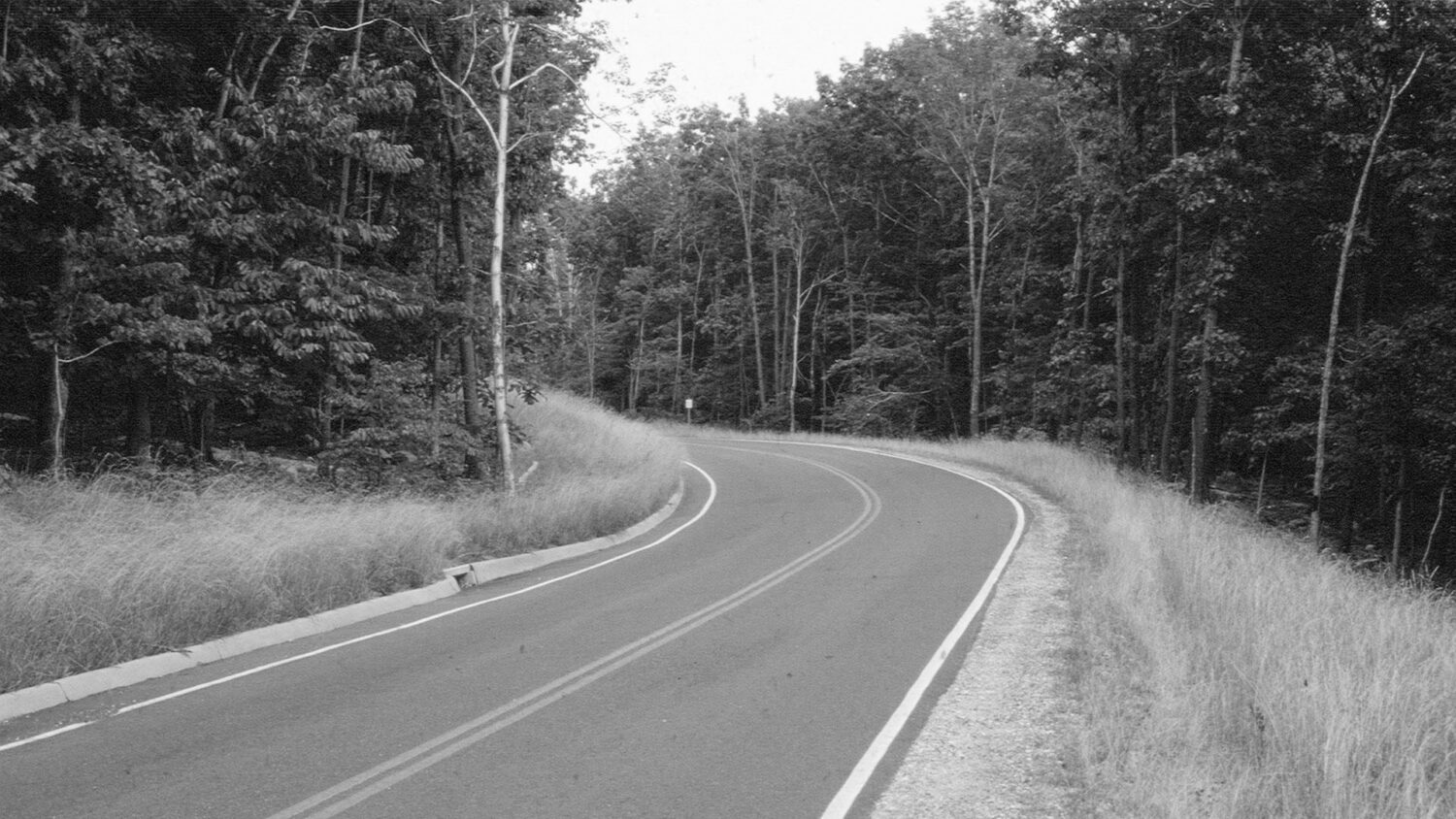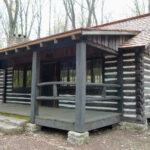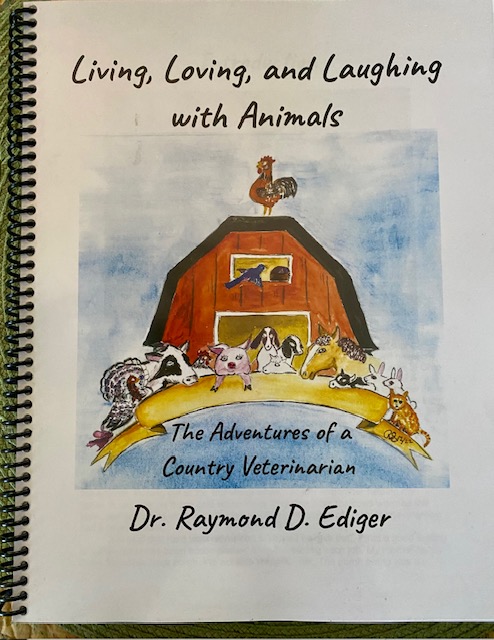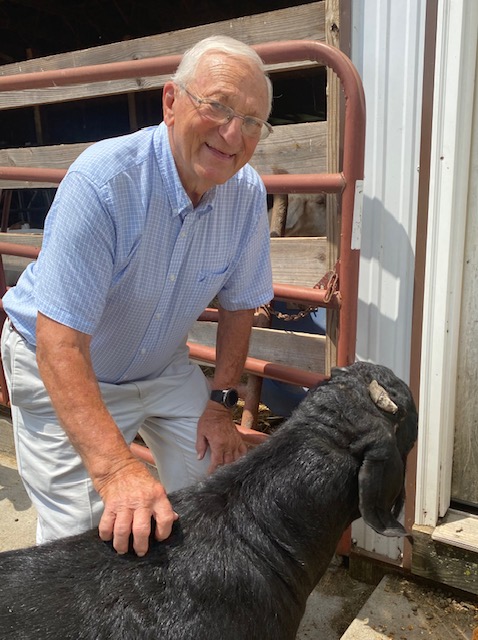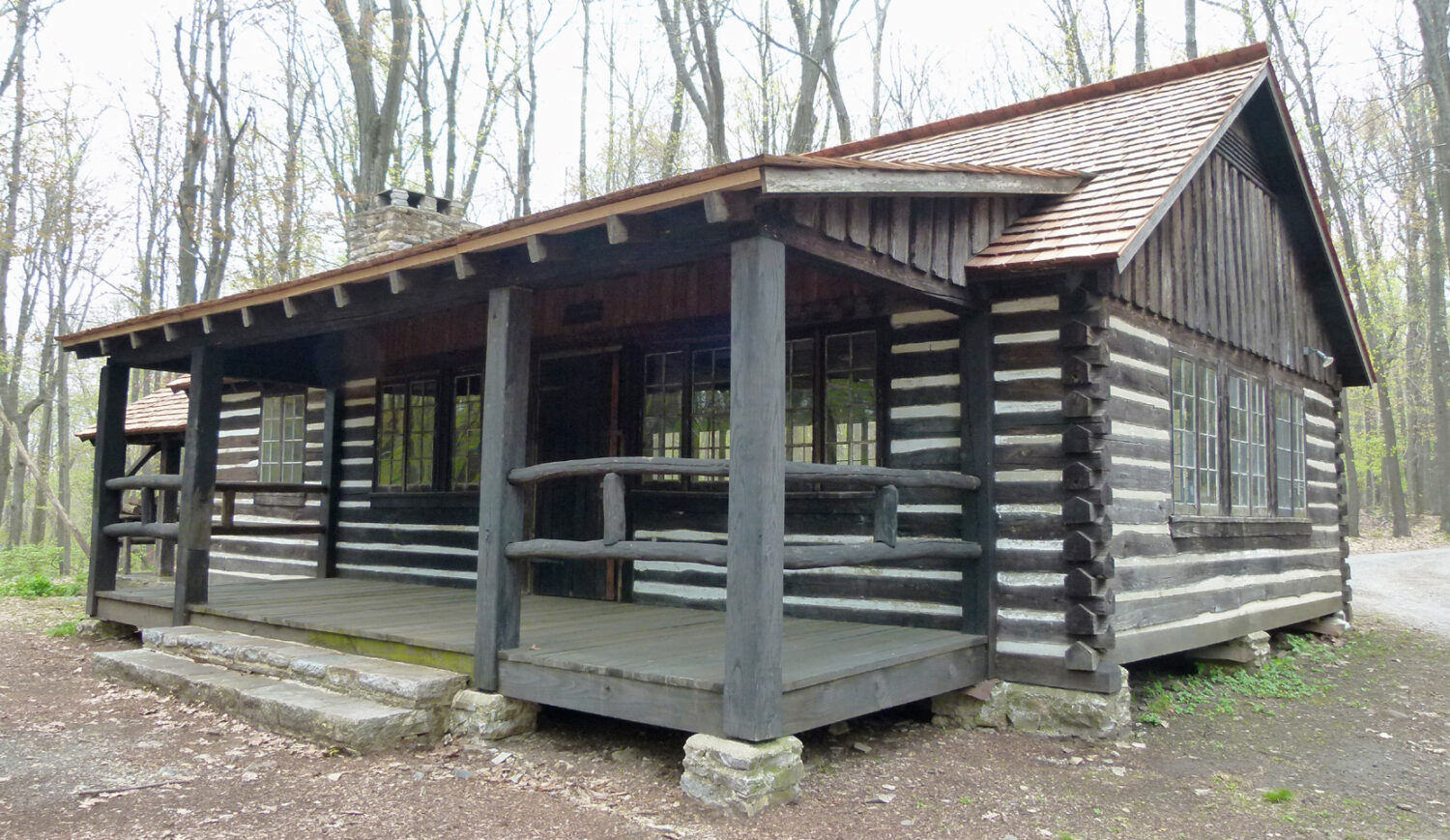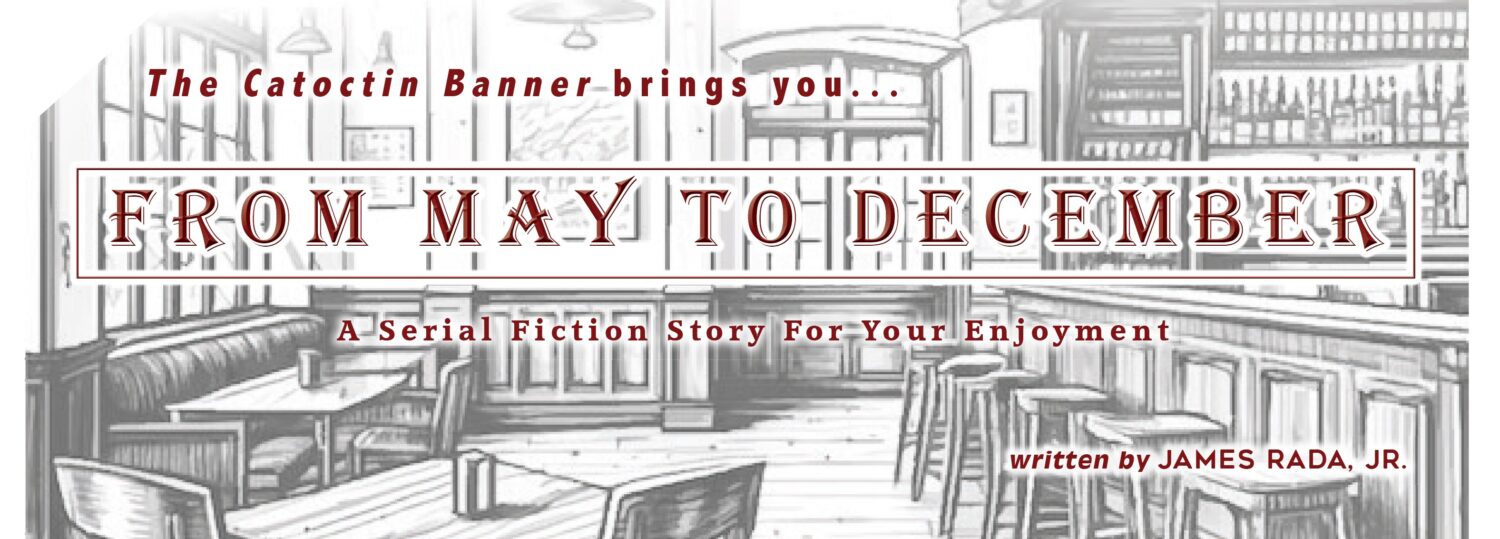
A serial fiction story for your enjoyment
written by James Rada, Jr.
T h e C a t o c t i n B a n n e r b r i n g s y o u . . .
11: Happy Birthday
Bobby Hennessey slowly opened his eyes, the bright morning light stabbing at his head like knives. As he shifted in bed, he could feel the dryness of his mouth and the throbbing in his temples. He had only indulged in two beers the night before, but he felt as if he had downed an entire bottle of whiskey. Then again, how long had it been since he’d had a beer?
As he sat up, he realized that the pounding was not just in his head. Someone was knocking loudly on his front door.
Dragging himself out of bed, Bobby slipped on a robe and stumbled toward the door. It swung open to reveal Peter Lawrence, the son of Bobby’s farm manager, holding a grocery bag filled with ingredients.
“Can you help me make a cake, Bobby?” Peter asked eagerly. “I already bought everything we need from Weis.”
Bobby ran a hand through his disheveled hair. “I can help, but why not ask your mom?”
“It’s for her birthday,” Peter explained. “I want to surprise her tomorrow.”
Bobby nodded, understanding now. “How old is she turning?”
“I don’t know,” Peter admitted sheepishly. “You know how she is about her age.”
Bobby knew. He had tried to get her to tell him her age one evening at Rocky’s Pizza, but she had kept the secret better than a Cold War spy.
Bobby stepped aside and gestured for Peter to come inside. “Well, let’s get started then. You can set out all the ingredients in the kitchen while I change. We’ll make her a nice cake and put 50 candles on it.”
Peter’s forehead wrinkled. “I don’t think she’s that old.”
Bobby grinned. “I know she’s not, but her reaction when she sees the cake with all those candles will be priceless.”
Ten minutes later, Bobby emerged from his room dressed in jeans and a T-shirt. He joined Peter in the kitchen, where all the ingredients were laid out on the counter. Together, they worked on baking a three-layer German chocolate cake—Peter’s mother’s favorite.
While the finished cake was cooling, Bobby and Peter hopped into Bobby’s truck and drove into Thurmont to buy candles for the cake. Along the way, Bobby also picked out a birthday gift for Stacy Lawrence, a small gesture to show his appreciation for their friendship.
The following day, Peter eagerly brought his parents over to Bobby’s house from the cottage that Stacy and Peter lived in on Bobby’s farm on Catoctin Mountain. They arrived just as Bobby lit the last of the candles on the cake, which sat proudly atop the dining room table.
“Happy birthday!” Peter announced as he led his parents into the house.
Stacy Lawrence’s face lit up when she saw the towering cake in front of her.
“Peter made it for you,” Bobby stated with a grin, waiting for Stacy to notice the candles.
“Bobby helped a little,” Peter added modestly.
“Well, a little, but Peter did most of the work,” Bobby admitted.
“How many candles did you put on it?” Stacy asked inquisitively.
“Get your camera ready, Peter,” Bobby instructed as he held up his phone. “Fifty.”
“Fifty?! I’m not that old,” Stacy protested playfully as Peter snapped a picture.
“If you want fewer candles, then tell us how old you are, really?” Bobby asked with a teasing grin.
She hesitated before finally confessing, “I’m 32.”
“Good enough,” Bobby said with a shrug before swiftly extinguishing 18 of the candles. “You still have to blow out the rest.”
Stacy took a deep breath and blew out the remaining candles, accompanied by cheers and applause from everyone in the room. Peter eagerly cut into the cake and handed her the first slice. She savored every bite and praised him for his baking skills.
“Maybe you should cook dinner sometime,” she suggested playfully to Peter.
“Only if it’s cake,” he replied. “So why didn’t you tell us your age before when we were at the pizza place?”
Stacy glanced at Bobby before admitting with a sheepish smile, “I guess because I feel old. Thirty-two is middle-aged, after all.”
“Don’t be ridiculous,” Bobby chided gently. “Thirty-two is still young.”
“You should talk,” Stacy said. “We still don’t even know how old you are, Bobby.”
Bobby laughed. “Fine. I’ll tell you as part of your birthday present. I’m 53.”
“Fifty-three?! You’re old enough to be my father,” Jack Lawrence, Stacy’s ex-husband, exclaimed.
Stacy slapped Jack in the stomach.
“So why didn’t you tell us?” she asked.
Bobby’s shoulders lifted and dropped in a nonchalant shrug. “Well, we had only just met. And people tend to make assumptions about men my age. If you’re just entering middle age, I’m probably well past the halfway point.”
“Then take your own advice,” Stacy retorted. “You’ve still got plenty of years left.”
Bobby reached into his pocket and pulled out a small envelope. “Here’s the rest of your gift,” he said, handing it to her.
Stacy eagerly tore open the envelope, finding two gift cards inside. One was for a high-end beauty salon, so she could treat herself to a luxurious hair appointment, and the other was for a massage at the Catoctin Mountain Massage and Wellness Center.
“I thought you could use some pampering and relaxation,” Bobby explained with a smile.
Stacy’s face lit up with gratitude. “Thank you, it’s perfect,” she said sincerely.
“I also think it will pair well with Peter’s gift,” Bobby added.
Peter reached across the table and handed his mother a card. Inside was a $50 gift card to Bollinger’s Restaurant, one of their family’s favorites.
“When you get your hair done, I’ll take you out to dinner,” Peter promised with a grin.
Overcome with emotion, Stacy hugged her son tightly. “I love it. Thank you both so much.”
Jack chimed in awkwardly, “I would have gotten you something too, but I completely forgot it was your birthday.”
“Well, that assumes you remembered at some point,” Stacy said.
As they continued eating cake and enjoying each other’s company, Stacy couldn’t resist showering Peter with affectionate hugs and grateful words.
At one point, Peter leaned over to Bobby and asked quietly, “Is she okay?”
Bobby patted him on the shoulder understandingly. “I think she’s starting to realize her baby boy isn’t so little anymore.”
Later in the evening, Jack snuck up behind Stacy and wrapped his arms around her in a warm embrace. Leaning in close, he whispered in her ear, “I thought of something I could give you as a birthday gift that you haven’t had in a while.”
“A child support payment?” she asked.
The smile dropped from Jack’s face as he withdrew his hands.
“You always did know how to spoil things,” he muttered with a hint of irritation.
“Jack, I am not your booty call. I am your ex-wife, and I’m trying to help you out because we have a son, but you’re not making it easy.” Stacy’s voice trembled with frustration as she stood in the doorway of the living room, arms crossed over her chest.
“How so? I help out around here. I’m doing chores.” Jack’s voice was defensive as he sat on the couch, feet propped up on the coffee table.
“But are you looking for work? This—you staying here—is not a permanent thing. You doing chores is covering the cost of you staying here, although it doesn’t cover you using my car at night or using my credit card.” Stacy’s words were laced with bitterness and resentment.
Jack shifted uncomfortably, his eyes avoiding hers. He knew she was right, but he didn’t want to admit it.
“I was going to pay you back,” he said weakly.
“With what? You’re not working. This is not working, Jack. You need to make arrangements with whoever your latest girlfriend is and move out, or one night, you’ll find all your stuff in the driveway.” Stacy’s tone was firm and final.
“Don’t be a b…” Jack started to say before Stacy cut him off with a stern look.
“If you finish that sentence, you’ll be out tonight.” Her words hung heavy in the air.
Jack clenched his jaw and stormed outside. Stacy sighed and rubbed her temples. She hadn’t meant to lose her temper like that, but Jack had always known how to push her buttons. It may have worked well in bed, but it certainly didn’t work outside of it.
She glanced up and saw Peter peeking through the slightly open door to his room. Without saying a word, she closed the door gently behind her. As she walked across the hallway towards her own room, she couldn’t help but feel guilty for arguing in front of their son.
Stacy sighed again and walked over to Peter’s door, gently knocking on it. “Peter?”
When he didn’t answer, she opened the door and stepped inside. Peter lay on his stomach, facing away from her and looking out the window behind his bed.
“Why do you have to be so mean to him?” he asked without turning to face her.
“I think both of us were being mean, which we probably shouldn’t have done.” Stacy sat down at the edge of his bed, feeling a pang of guilt and regret.
“You asked him to leave,” Peter said quietly, still not looking at her.
She wanted to explain that Jack had taken her money and wasn’t working, but Peter had probably heard that.
“Your father and I aren’t married anymore. He’s not my responsibility. You are.”
“But we’re still family,” he insisted.
“You and I are family,” Stacy clarified. “But your father and I are not. It’s complicated, sweetie.”
Peter’s brows furrowed even deeper. “If we’re family, then why don’t I stay with him sometimes?”
She wanted to tell him the truth, but how do you explain to a child that their own father didn’t want them? Jack hadn’t fought for custody when they divorced; he had just assumed that Stacy would take care of it. He never asked about visitation either, only seeing Peter when it was convenient for him and never spending the night because he was always at the nearest bar.
“Your father takes you when he can,” she said evasively.
Peter turned away, burying his face into the pillow. “You don’t have to protect me.”
“But it’s my job. I’m your mother.”
“But he’s my father,” Peter protested, his voice cracking with emotion. “Why doesn’t he want me around?”
Tears welled up in Stacy’s eyes, as her heart broke for her son. She almost blurted out that Jack could stay with them, but she knew deep down that he wasn’t here for Peter. He was here because he had nowhere else to go after losing his job.
Having no true answer to give her son that wouldn’t hurt him, Stacy settled on a simple but painful truth. “Your father loves you, Peter.”
Without another word, Peter got up from the bed and walked out of the room, leaving Stacy to fall back onto the mattress in tears.
She wished more than anything that she could make everything right for her son, but some things were just out of her control.

